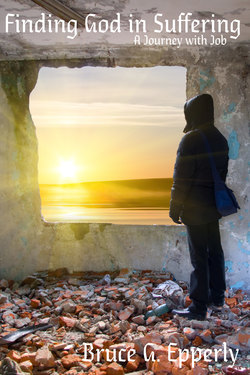Читать книгу Finding God in Suffering - Bruce G Epperly - Страница 4
ОглавлениеA Word for the Journey
Over thirty years ago, my pastor-mentor George Tolman, Senior Pastor of First Christian Church in Tucson, Arizona, stated in a sermon, “life is risky business, no one gets out alive, and on the way, there’s plenty of pain as well as joy.” The author and main character of Job would agree with this sentiment. As a pastor for nearly thirty five years, I’ve experienced the pain and grief occasioned by serious illness, the dying process, and the loss of loved ones. I’ve struggled with persons dealing with addictions, job loss, divorce, depression, unexpected catastrophic accidents, and financial and professional failure. Often there appears to be no hope for healing and recovery, and we walk together not knowing where to find a path toward wholeness and unsure of the final outcome of our journey. Explicitly or implicitly, questions of God and the meaning of life, as well as our role in the pain we and our loved ones experience emerge. A pastor’s role is to be a companion on the journey, rather than the source of clear and concise answers, as we seek healing in challenging situations. A pastor’s calling is to be present and remain open-hearted to others’ pain and distress.
It has been said that theology begins in the experience of suffering. At the very least, debilitating suffering challenges our images of success and security, and invites us on a quest for something solid and dependable when the foundations of our lives are shaking. The book of Job emerges from one person’s unexpected encounter with suffering. Job seeks God’s presence, and to find a God he can trust again, he must jettison his previous images of God. He must let go of his image of an intricately structured universe, in which goodness is always rewarded and evil always punished proportionate to our behavior. On the way, he loses faith in his tradition’s image of God, and begins to discover a vision of God large enough to embrace the unknown and unsolvable, and yet intimate enough to be a source of comfort and insight in time of pain.
As pastor-theologian, it is my calling to be a pilgrim with those who suffer, and to reflect on the meaning of suffering, and God’s presence in the pain we experience, often for no apparent reason and no fault of our own. In this spirit, I am grateful for the opportunity to share my insights based on a course “Experiencing God in Suffering: A Journey with Job,” held at South Congregational Church, United Church of Christ, in Centerville, Massachusetts. Amid the beauty of Cape Cod, just a few minutes’ walk from the seashore, our study groups reflected on the very real pain that people experience. We pondered the text of Job and also the textbook of our lives seeking insight into God’s presence in times of pain and failure. Every member of the groups had faced serious illness, was experiencing diminishments of the aging process, or lived with the loss of loved ones. I am grateful to my Sunday and Tuesday morning groups for their commitment, insight, and contribution to this text. Although this text emerged from my reflections and reflects my vision of Job and the challenges of suffering, it was profoundly shaped by our weekly conversations.
I am grateful to the members of South Congregational Church, the Job study groups, and persons over the past thirty five years who have come to me with questions and struggles. Their experiences inspired me to explore the problem of evil and the reality of suffering through the lens of the Book of Job. They also helped me discover healthy and supportive ways to respond to my own and my congregants’ suffering. Pastors and helpful friends, as the text of Job reveals, can do much harm to people who suffer, especially when they blame the victim, minimize peoples’ pain, or provide superficial solutions.
I dedicate this text to my mother-in-law Maxine Gould, who faced her own death this year with grace and equanimity, to my son Matt, a cancer survivor, and all my dear companions facing life-threatening illness. My prayer is that every reader experiences a sense of divine companionship and inspiration amid the inevitable pain and loss that comes with the tragic beauty of human life.
The Season of Pentecost 2014
